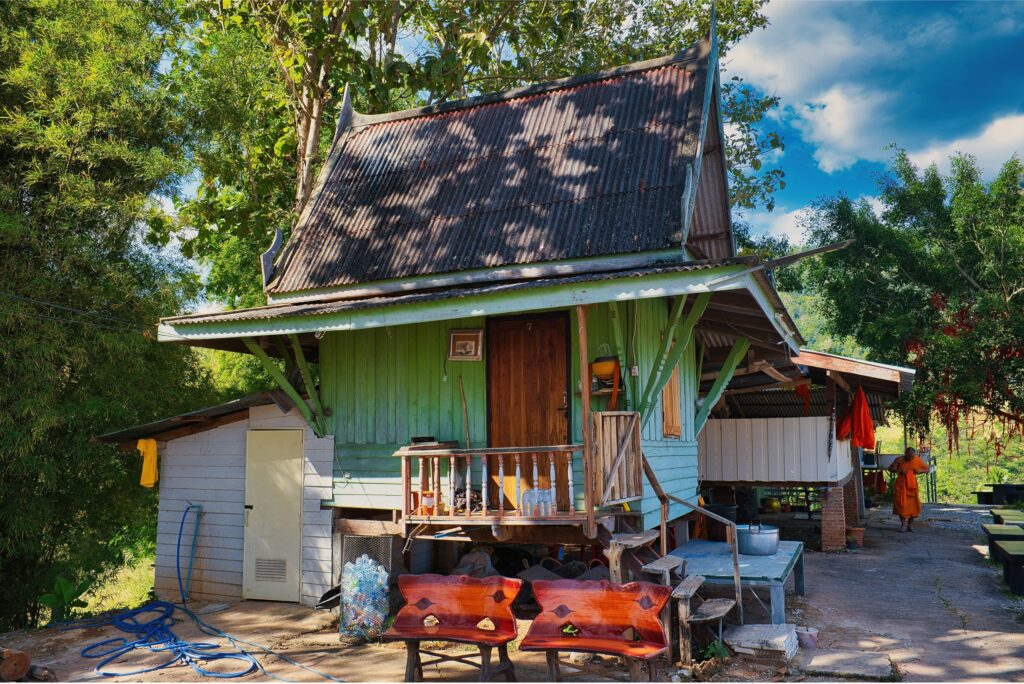By Stephen Buller
I travelled to Thailand in 2014, and – in addition to the delicious food, exotic sights, and incredible scuba diving – a conversation with my friend’s father stuck with me. He and his wife were expats from the U.S. and were building a home in Thailand. However, they were unable to own the home because only Thai citizens are allowed to own real estate there.
My younger self thought, “What insanity is this? I’m so glad I live in a country that values the free market!” As the years have passed, I have realized some problems with my perspectives – both that this is a terrible idea and that we live in a free market society.
The largest reason for my change in perspective comes from recognizing housing as shelter, a basic human need. Our government subsidizes food and drinking water in multiple ways. Thankfully, breathing air is free –for now – and mostly clean. But when it comes to shelter, “affordable housing” is a cotton swab over a gaping wound.
The federal government actively makes overall housing more expensive by allowing the Federal Reserve to purchase mortgage-backed securities (MBS). These are investment instruments containing many individual mortgages, some of them toxic, at risk of default, and not worth the price they pay – or someone else would have bought them.
Prior to the Great Financial Crisis (GFC) of 2008, the Fed was only allowed to purchase Treasuries (U.S. bonds), and I would argue that’s not a good thing, either. However, I expect the “menu” of purchasable assets to only increase. Don’t be surprised if the Fed purchases stocks in the next market downturn.
The stake the federal government took in Intel recently (purchasing 10% of the business to become its largest single stockholder) should be evidence enough. And this is not the first time this has happened; some of you may remember all those “too big to fail” businesses bailed out during the GFC.
You may argue merit in the government taking a stake in Intel, especially if you believe AI will play an important and imminent role in our national security. Regardless, the effect is the same: Anytime our government creates new currency to purchase assets, it drives that asset price higher, and it dilutes the purchasing power of every other dollar out there, increasing consumer inflation.
How then do we argue the merit in driving housing prices higher with artificial demand? The only answer I can come to is the “wealth effect.” If existing homeowners see the value of their home decrease, they feel poorer which makes them pull back on spending, which has a negative effect on the economy.
This is ironic, because a higher-priced home costs its owner more – in interest, property taxes, insurance, and repair and maintenance. If the owner sells at the right time, they can make a huge profit, but we have learned that home prices can come down to Earth …
I contend that the government should stop buying mortgages, and we haven’t even discussed how the Fed manipulates interest rates to prop these prices up as well. Our monetary system is fueled by debt, and it is a house of cards. Their solution to everything is “lower rates, pump liquidity,” and this will only drive all prices higher – until they lose control.
A more nuanced conversation is required when we discuss which individuals or companies should be allowed to own real estate. Since my trip to Thailand, I’ve learned that many countries allow only citizens to purchase property. I still think there are pros and cons to this, but it would certainly decrease demand and therefore prices in the housing market.
I’ve also learned about homestead tax exemptions, where property taxes on primary residences are lower than an investment property or second home. As a businessman, this appeals to me because there would still be savvy people who could make a business out of rental properties, providing a valuable service for people who want to rent instead of own for various reasons, even if their property taxes were higher.
Property taxes are based on a home’s assessed value, though, so again the main issue is getting prices down. As usual, the solutions we’ll be presented with will instead be to take on more debt, probably in the form of 100-year mortgages and negative interest rates, to focus on our monthly payment and not on the fact that we’ll be slaves to that debt for the rest of our lives.
That’s the reason it was called a “mortgage” to begin with. Now, will our children and grandchildren be saddled with our debt as well? Or will we remove some of the artificial and speculative demand for shelter, a basic human need, to make it more affordable?

